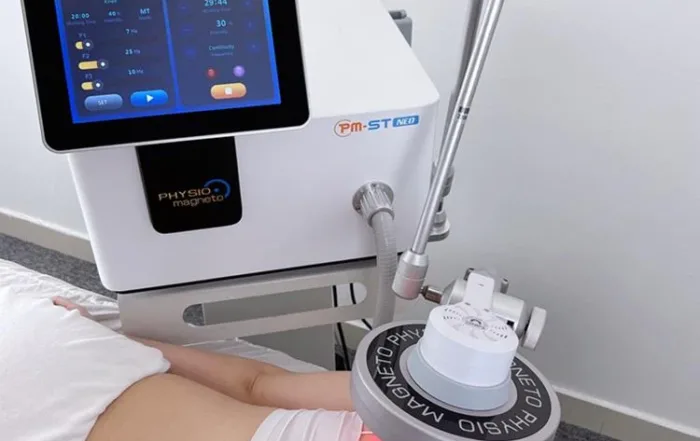It’s easy to skip your annual check-up when life gets hectic—especially if you feel healthy. But many serious health conditions develop quietly, showing no symptoms until damage has already been done. That’s why your yearly physical exam is more than a routine—it’s a proactive step in safeguarding your long-term health.
At HealthWorks, we believe that prevention is the most powerful form of care. Your annual exam offers a vital chance to detect silent issues early, manage risk factors, and tailor a plan for your well-being. Conditions like high blood pressure, high cholesterol, Type 2 diabetes, certain cancers, and thyroid disorders often show no obvious signs until they become severe. Even kidney or liver problems, vitamin deficiencies, and early signs of heart disease can go unnoticed without proper screening.
Catching these issues early not only improves your chances of effective treatment—it can also prevent complications altogether. With your doctor’s help, your annual check-up becomes a launchpad for healthier living, customized advice, and peace of mind.
Don’t wait for symptoms to show up. Schedule your annual check-up today and invest in your future health—because prevention is always better than cure. At HealthWorks, your health is our priority.
1. High Blood Pressure (Hypertension)
Why It’s Silent:
High blood pressure, often called the "silent killer," usually shows no symptoms until serious complications arise. Because it quietly strains your heart and blood vessels, many people don’t realize they have it. Without treatment, high blood pressure can lead to life-threatening issues such as heart attacks, strokes, and kidney damage. Regular monitoring during your annual check-up is essential to catch this condition early. Managing blood pressure through lifestyle changes and medication can significantly reduce the risk of these severe health problems. Early detection saves lives, making blood pressure checks a crucial part of preventive healthcare.
How Annual Check-Ups Help:
Routine blood pressure measurements during your annual check-up play a vital role in detecting elevated levels early. Even if you feel fine, these readings can reveal hidden risks that may lead to serious health problems like heart attacks or strokes. Early detection allows your healthcare provider to recommend manageable lifestyle changes—such as improved diet, regular exercise, and stress reduction—or prescribe medication if needed. Taking action early can prevent these risks from escalating into life-threatening events. Regular monitoring ensures your heart and blood vessels stay healthy, making blood pressure checks an essential step in maintaining long-term wellness.
2. High Cholesterol
Why It’s Silent:
High LDL cholesterol, often called "bad cholesterol," doesn’t cause any noticeable symptoms but quietly builds up in your arteries over time. This buildup narrows and hardens the arteries, restricting blood flow and increasing your risk of serious conditions like heart disease and stroke. Because it develops silently, many people are unaware they have high LDL until a major event occurs. Regular cholesterol screenings during your annual check-up can detect elevated LDL levels early. With timely lifestyle changes or medication, you can reduce LDL cholesterol, protect your heart, and significantly lower your risk of life-threatening cardiovascular problems.
What to Expect:
A simple lipid panel blood test during your annual exam can reveal abnormal cholesterol levels, including high LDL (“bad”) cholesterol and low HDL (“good”) cholesterol. Identifying these issues early is crucial because imbalanced cholesterol levels significantly increase your risk of heart disease and stroke. If detected, your doctor can recommend effective interventions such as dietary changes—like reducing saturated fats and increasing fiber—or prescribe statin medications to help lower cholesterol. These steps can dramatically reduce your cardiovascular risk, protecting your heart and blood vessels and helping you maintain long-term health and well-being.
3. Type 2 Diabetes or Prediabetes
Why It’s Silent:
Diabetes often develops silently, with no early symptoms to warn you. Over time, high blood sugar levels can cause serious damage to your organs, nerves, and blood vessels without you even realizing it. Many people only discover they have diabetes after complications like vision loss, kidney problems, or nerve pain arise. That’s why regular screening during your annual check-up is so important, especially if you have risk factors like family history, obesity, or high blood pressure. Early detection allows for timely management through diet, exercise, and medication, helping prevent these severe complications and improve your quality of life.
Screening During Check-Up:
A blood glucose test, whether fasting glucose or A1C, is a standard part of annual exams—especially for those over 40, overweight, or with a family history of diabetes. These tests measure your blood sugar levels and help detect prediabetes or diabetes early, often before symptoms appear. Early diagnosis is crucial because lifestyle changes like improved diet and increased physical activity can reverse prediabetes and prevent it from progressing to full-blown diabetes. With timely intervention, you can protect your organs and overall health, reducing the risk of serious complications and maintaining a better quality of life.
4. Kidney Disease
Why It’s Silent:
Kidney function can decline silently over time without obvious symptoms, making early detection challenging. As kidney health worsens, waste and fluid build up in the body, which may eventually cause fatigue, swelling in the legs or ankles, and changes in urination. Unfortunately, many people only realize there’s a problem once kidney damage becomes advanced or irreversible. That’s why routine kidney function tests during your annual check-up—such as blood tests measuring creatinine and estimated glomerular filtration rate (eGFR)—are essential. Early detection allows for interventions to slow progression and protect your kidneys from serious complications, including kidney failure.
The Screening:
Routine urinalysis and blood tests (e.g., creatinine, BUN) during your check-up can uncover reduced kidney function. Lifestyle modifications and early treatment can slow progression.
5. Liver Disease
Why It’s Silent:
Liver diseases like fatty liver and hepatitis often develop gradually and silently, causing little to no pain or discomfort in the early stages. Because the liver can compensate for damage, symptoms usually don’t appear until the disease has progressed significantly, sometimes becoming irreversible. This silent progression makes routine liver function tests during your annual check-up crucial. Blood tests can detect abnormalities early, allowing your doctor to recommend lifestyle changes, medications, or further evaluation. Early intervention can prevent serious complications like liver cirrhosis or failure, helping you maintain liver health and overall well-being.
Annual Screening:
Blood tests measuring liver enzymes, such as ALT (alanine aminotransferase) and AST (aspartate aminotransferase), are key tools in detecting liver abnormalities early. Elevated levels of these enzymes often indicate liver inflammation or damage, even before symptoms appear. Identifying liver issues at this stage allows for timely treatment, lifestyle changes, and monitoring to prevent progression. Early intervention can stop liver damage from worsening into serious conditions like cirrhosis or liver cancer. Including these tests in your annual check-up is essential for maintaining liver health and catching potentially life-threatening problems before they become irreversible.
6. Thyroid Disorders
Why It’s Silent:
Hypothyroidism and hyperthyroidism are common thyroid disorders that often present with vague symptoms such as fatigue, weight changes, and mood swings. Because these symptoms overlap with everyday stress or the natural aging process, they are frequently overlooked or misattributed. However, untreated thyroid imbalances can lead to serious health issues, including heart problems, infertility, and mental health challenges. Routine thyroid function tests during your annual check-up can help detect these conditions early. Timely diagnosis and treatment can restore hormone balance, improve symptoms, and prevent complications, ensuring better overall health and quality of life.
What Your Doctor Checks:
TSH (thyroid-stimulating hormone) tests are essential for detecting thyroid imbalances such as hypothyroidism or hyperthyroidism. Measuring TSH levels helps your doctor assess how well your thyroid is functioning, often before symptoms develop. Annual screening is especially important for women over 35, as they are at higher risk for thyroid disorders, as well as anyone with autoimmune conditions or a family history of thyroid disease. Early identification through routine TSH testing allows for timely treatment, preventing complications and improving quality of life. Including TSH tests in your annual check-up ensures your thyroid health is closely monitored and well managed.
7. Osteoporosis
Why It’s Silent:
Bone loss (osteoporosis) develops quietly without symptoms until a minor fall causes a fracture, impacting mobility. Routine bone density tests during annual check-ups—especially for women over 50 or those at risk—allow early detection. This enables timely lifestyle changes and treatments to strengthen bones and prevent fractures.
Early Detection:
If you’re over 50 or postmenopausal, your doctor may suggest a painless DEXA bone density scan to detect early osteoporosis. Early detection helps prevent fractures. Lifestyle changes—like exercise, calcium-rich diet, quitting smoking, and limiting alcohol—plus supplements can preserve bone mass and support long-term bone health.
8. Colorectal Cancer
Why It’s Silent:
Early colorectal cancer often has no symptoms, making screening vital. Polyps can become cancerous if untreated. Tests like colonoscopies detect and remove polyps early, greatly reducing cancer risk. Screening is especially important for adults over 50 or with family history, ensuring early, effective treatment.
Screening Options:
At your annual check-up, your doctor may recommend a colonoscopy or stool-based tests like Cologuard to screen for colorectal cancer. These screenings detect polyps and early cancer, increasing treatment success and survival. Early screening is crucial for protecting your health and preventing serious complications.
9. Cervical and Prostate Cancer
Why They’re Silent:
Cervical and prostate cancers often develop silently, showing no symptoms in early stages. This makes regular screening—such as Pap smears for cervical cancer and PSA tests for prostate cancer—essential. Early detection through these tests improves treatment success and significantly increases the chances of long-term survival and health.
At Your Exam:
Pap smears for women and PSA blood tests or digital rectal exams for men are essential screening tools for early detection of cervical and prostate cancers. These tests help identify abnormalities before symptoms appear, allowing timely treatment that greatly improves outcomes and increases the chances of long-term survival.
10. Mental Health Disorders
Why They’re Silent:
Conditions like depression, anxiety, and early dementia often develop subtly, impacting behavior, sleep, and relationships long before clear symptoms emerge. Early identification through regular mental health screenings during annual check-ups can lead to timely support and treatment, improving quality of life and preventing more serious complications down the line.
How Doctors Detect It:
Annual wellness visits often include brief mental health screenings or questionnaires to identify issues early. If needed, your doctor can refer you to a mental health professional or recommend treatments such as therapy or medication, ensuring you receive timely support to maintain your emotional and mental well-being.
FAQs About Annual Check-Ups
Q1: How often should I get an annual check-up?
A: Once per year is recommended for most adults, especially those over 40. Patients with chronic conditions may need more frequent visits.
Q2: What’s included in a typical annual exam?
A: Physical assessments (weight, blood pressure), blood work, urinalysis, and screenings for age-appropriate conditions such as cancer, diabetes, and cholesterol.
Q3: Will I need to fast before my annual check-up?
A: Possibly. If your doctor is ordering a fasting blood glucose or cholesterol test, you may be asked to fast for 8–12 hours.
Q4: Is it worth getting a check-up even if I feel healthy?
A: Absolutely. Most silent conditions show no symptoms until damage is done. Prevention and early detection are always better than treatment.
Q5: Does insurance typically cover annual check-ups?
A: Many insurance plans cover preventive services like annual physicals. It’s best to confirm with your provider or clinic staff.
Conclusion
Your annual check-up is far more than just a routine—it’s a vital opportunity to catch silent health threats before they escalate into serious, life-changing problems. Conditions like high blood pressure, diabetes, and early-stage cancers often develop without noticeable symptoms, making regular screenings essential. Timely detection allows for early intervention, which can prevent complications, improve treatment outcomes, and significantly enhance your quality of life. Don’t wait until symptoms appear to take action. Prioritize your health by scheduling your annual exam and stay proactive in managing your well-being. Taking control today can protect your tomorrow.
Is it time for your annual check-up? Book your appointment with HealthWorks today and take the first step toward a longer, healthier life. Our compassionate team is here to support your wellness journey—because your health deserves the best care, even when nothing feels wrong.
🎯 Ready to turn your check-up into a check-in with your best self?
At HealthWorks, we don’t just treat you—we coach, guide, and empower you.
✅ Book your annual check-up ✅ Get personalized lifestyle support ✅ Start transforming your daily habits now
📍 Visit us at: 1240-A Central Ave., Summerville, South Carolina 📞 Call us at: 843.821.8787
👉 Schedule Your Visit Today Find a clinic near you and start your journey to better living!
OPENING HOURS
| Mon.-Fri. | 8am-7pm |
| Saturday-Sunday | Closed |



